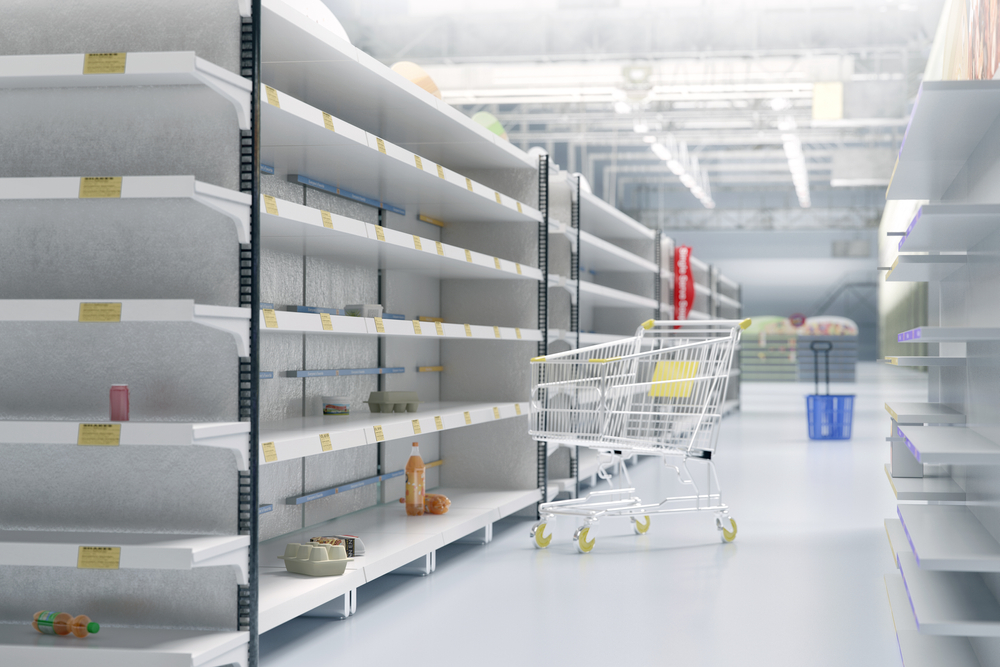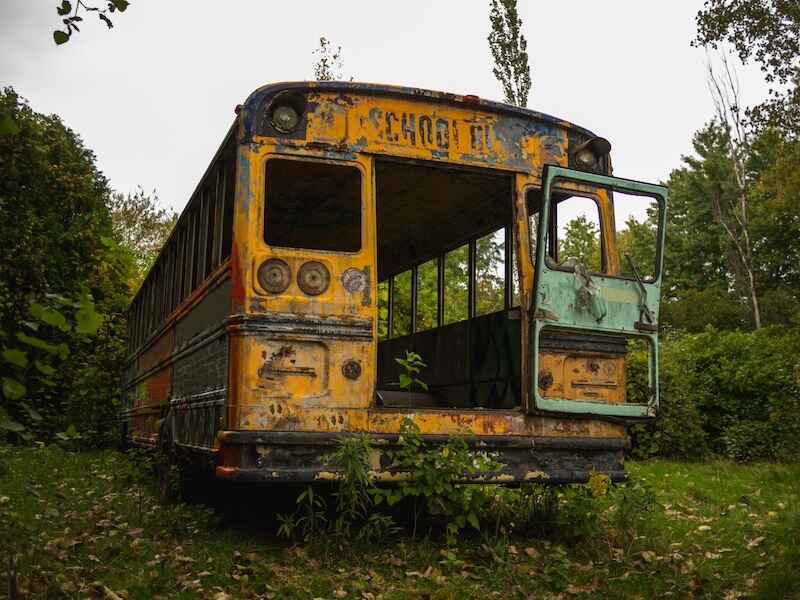The Bright Side of the Ongoing Supply Shortage
Joel Salatin|March 16, 2021

Supply shortages rocked our county last year as COVID-19 quickly spread.
And as those shortages continue in one form or another a year later… there are a few important lessons we’ve learned from them.
Allow me to paint the picture.
We’ve ordered egg cartons from Packaging Corporation of America for many years. The turnaround is about two weeks.
So imagine our shock when we placed an order recently and learned that the wait is six months.
We recently reprinted another book. With a dozen titles and routine reprints, we’ve enjoyed a smooth process for many years.
The turnaround for a reprint is right at 30 days. The last one jumped to 90 days.
Why? The press foreman got COVID-19, forcing his entire crew into quarantine. About the time he came back, the bindery foreman got the virus. Ditto the quarantine for that crew.
One thing after another. Meanwhile, back orders pile up and the phone starts ringing: “What’s wrong with you people? I want my book.”
I wrote an essay to you last year about tree farmers in the Deep South losing their shirts and, in some cases, losing their farms due to low timber prices.
One response to that essay went something like this: “I’ll never read Salatin again because he completely lost credibility; doesn’t he know lumber prices are at an all-time high?”
Most folks assume that if prices are high at retail, the farmer enjoys the ride.
But as a large exposé in The Wall Street Journal pointed out recently, finished lumber prices are not trickling down to tree farmers.
High prices 30 years ago encouraged overplanting and dried up the sawmills. Today, with demand for finished lumber in the construction industry at a high point and tree farmers with inventory desperately needing to be harvested, not enough sawmill capacity exists to bridge the two.
This creates an extreme shortage of milled boards, driving up the price at Lowe’s and Home Depot. But a glut exists at the production level.
Last year, when stores had no meat and poultry, for example, retailers offered to pay almost anything to restock their shelves. Some even called our farm desperate for product.
At the same time, farmers were euthanizing pigs and chickens because processing plants got shut down. As retail prices spiked, farm prices tanked.
The common thread to these shortages is that they reveal hiccups in what we thought were smooth-running systems.
These shortages were the cumulative effect of thousands of decisions… all of which were made based on conditions at the time. They created anomalies that lay in wait…
Until a black swan event like COVID-19 was able to wreak havoc.
But there’s another side to the story. A far more positive side…
A Tsunami of Demand
Anything having to do with self-reliance is booming.
The spike in home remodeling projects due to folks being at home is one of the reasons for unprecedented demand for finished lumber.
Chick hatcheries can’t keep up with newfound demand for backyard chickens.
Seed companies have rolling lockouts in online ordering to meter out packets going to first-time gardeners.
Fruit tree stock is in demand.
Community-scale abattoirs are already booked into 2022 for processing slots. Anyone who can raise a pig or a beef steer is doing it.
That’s a good thing, but when done by thousands all of a sudden, it bumps up against the dire shortage of skilled butcher space.
Have you tried buying canning jars lately? They’re being scooped up at estate sales like rare jewels. Goodness, canning jar lids are a treasure among home gardeners.
Everything home-centric is on a tsunami right now, creating unprecedented demand in the marketplace.
And contrary to the narrative put out by the media, none of these shortages has anything to do with resources. We have plenty of trees, plenty of chickens and plenty of grass.
The shortage is post-resource. It’s in the manufacturing and value-adding phases.
And that’s an ultimately hopeful message. We are not running out of the Earth’s capacity to feed and clothe us.
Our shortages are, for the most part, temporary glitches created by policy, fear, sickness and sudden market fluctuations.
While shortages are irritating and frustrating, knowing their origins and that they are generally short-lived encourages us toward the future.
If home-centricity sticks around for the long term, garden seeds will catch up… finished lumber will catch up… and even egg cartons will catch up.
Our Earth nest has the capacity. We just need to adjust our activities and investments in it.
What’s a new skill you’ve recently learned? Tell us about it (and feel free to brag a little) at mailbag@manwardpress.com.

Joel Salatin
Joel Salatin calls himself a Christian libertarian environmentalist capitalist lunatic farmer. Others who like him call him the most famous farmer in the world, the high priest of the pasture, and the most eclectic thinker from Virginia since Thomas Jefferson. Those who don’t like him call him a bioterrorist, Typhoid Mary, a charlatan, and a starvation advocate. With a room full of debate trophies from high school and college days, 12 published books, and a thriving multigenerational family farm, he draws on a lifetime of food, farming and fantasy to entertain and inspire audiences around the world.



